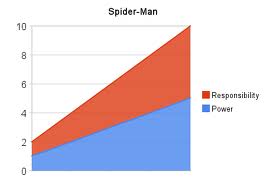Mutant Powers: What A DNA Test Can Tell You About Yourself
.
I’m probably going to live longer than you are.
I can’t be sure, of course, but I have two genes associated with exceptional longevity, so all other things being equal, well, I’d take those odds in Vegas.
I have two working copies of ACTN3 in my muscle fibers, which is associated with elite athletic performance and means my body is optimized for power sports like sprinting and weight lifting.
I also lack a functional FUT2 gene, so I’m immune to stomach flu. (If this is my mutant power, I am the lamest of the X-Men.)
As part of the GG genotype, I don’t have congenital problems learning from my errors, due to how my dopamine signaling system works. Hopefully that’s a benefit to the blog.
How Do I Know All This?
It was all in a fascinating report by 23andme.
I spit into a vial, shipped it to them, and a few weeks later I found out, among other things, that I’m a fast metabolizer of caffeine — something the people at Starbucks probably could have told me without any spitting involved.
What’s been the really fun part?
Talking about it with friends.
People almost always fall into one of two groups:
- Why in the world would you do that? I don’t want to know if I’m at risk for Alzheimer’s or if I might give my kids the genes for cancer.
- Should I drink a lot of water before I spit into the tube? Can I do it right now?
Which was your reaction?
How much do you really want to know about your genetics?
You Are Your DNA
It’s naive to think your genetics don’t play a large role in who and what you become:
- Personality? Genetics affect how confident you are, leadership ability, alcoholism, and even whether you get married.
- Politics? Your DNA influences which party you support, how partisan you are, whether you vote, and the intensity of your beliefs.
- Money? Your genes affect whether you’re a cheapskate, how you invest, and if you’d be a good Wall Street trader.
Living past 100 is very much due to hereditary factors:
People who live to 95 or older are no more virtuous than the rest of us in terms of their diet, exercise routine or smoking and drinking habits, according to researchers at Albert Einstein College of Medicine of Yeshiva University… “This study suggests that centenarians may possess additional longevity genes that help to buffer them against the harmful effects of an unhealthy lifestyle.”
Genetics accounts for 50% of your happiness:
Perhaps the single most important determinant of SWB is genetics (Lykken & Tellegen, 1996; Tellegen et al., 1988). Simply put, some people arrive in this world with a predisposition to cheerfulness, optimism, and joy, whereas others are born with a predilection toward fearfulness, pessimism, and depression. Studies of twins separated at birth have yielded heritability estimates for SWB ranging from .40 to .70, with the most common figure around .50.
And only 20% of those who set out to change themselves can really sustain it.
The odds that significant improvements in either performance or happiness are sustained are only 1 in 5… Research on happiness confirms that people generally fall back to what social scientists call their “baseline happiness” levels shortly after events or accomplishments that significantly raise their happiness. This includes winners of large lotteries.
So do my test results indicate “mutant powers”, as I like to call them… or are they all inherent limitations?
You Are More Than Your DNA
Research shows you do grow over time. You learn from your mistakes.
Via Where Good Ideas Come From: The Natural History of Innovation:
Some historical studies of patent records have in fact shown that overall productivity correlates with radical breakthroughs in science and technology, that sheer quantity ultimately leads to quality.
Change is possible, but it takes time.
Changing habits takes an average of 66 days. Establishing competency at new skills takes approximately 8 weeks as well.
Hard work pays off. In fact, it pays off more than anything else.
Via Talent Is Overrated: What Really Separates World-Class Performers from Everybody Else:
One factor, and only one factor, predicted how musically accomplished the students were, and that was how much they practiced.
What’s really fascinating is that new research shows you can even change how your genetics affect you.
You may have certain genes but, dependent on what you do, they may not express themselves.
And how you live your life can alter how your children and even grandchildren are influenced by your genes.
Using the meticulous Swedish records, Bygren drew a random sample of ninety-nine people who lived in the small town of Overkalix in 1905. When he examined boys who had gone from starvation during one winter to gluttony the next, he found that they produced children, and even grandchildren, whose lifespan was much shorter than the norm. When all other factors known to affect longevity were taken into account, the difference was an incredible thirty-two years. This data revealed an astonishing fact. Living through two successive winters of bust and boom as a child set off a chain of biological events that reverberated down the generations so that one’s grandchildren would die years earlier than their peers.
Mutant powers? Now it’s sounding more like “With great power comes great responsibility.”

What Will I Do With My Mutant Powers?
More than anything, my 23andme test results have just been fun to talk about.
Knowing that I have the typical odds of getting severe malarial anemia isn’t good for much more than trivia.
The fact that I carry two genes associated with greater height probably isn’t surprising to people who have to look up to speak to me.
Will it change how I live my life? Maybe a little.
It’s good to know that if a doctor gives me the anti-clotting drug, Plavix, it’s not going to be very effective but I don’t think I need to overhaul how I do things.
I’m more concerned with my quality of life and state of mind — and I know what I need to do more of if I want to improve that.
Join 45K+ readers. Get a free weekly update via email here.
Related posts:
What does it take to become an expert at anything?
Is it true that 10,000 hours of practice will make you an expert at something?




